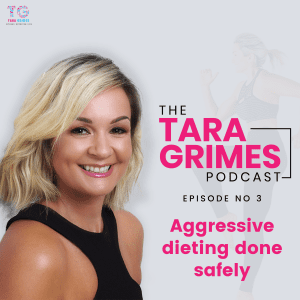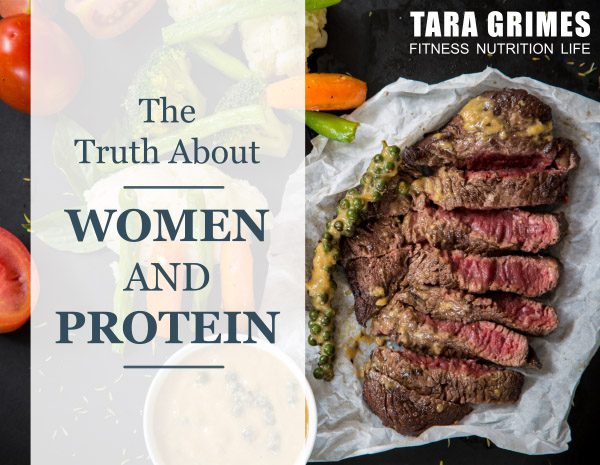Who doesn’t want to half their time on a diet and get results quicker!
This is a question I am frequently asked, and I am constantly bombarded with unusual myths and stigmas around this topic. Hopefully, today, I will explain how to lose weight quickly and, more importantly, safely. There is a popular dogma around fast weight and aggressive dieting being unhealthy and unsustainable. While I prefer to establish good habits and solid foundations when dieting clients, it’s important to research this topic and how it can be implemented safely.
What is fast weight loss?
Fast weight loss is seen as 2-2.5 lbs a week, keeping in mind 1lb of fat is equivalent to 3500 kcals. This is where the stigma is introduced, claiming that it is ‘unsustainable’, and ‘once you lose the weight, you’ll soon put it all back on!’. These claims are simply false. With the supervision of a coach and with the correct nutrition advice, this is a very achievable goal, often a tactic I will utilize with my online one-to-one clients, whom I keep in close contact with and monitor daily. Note; this is not for everyone, particularly those with a history of eating disorders or those with a poor relationship with food.
The Nutrition
This is an intense diet and can be a tremendous change for some people; therefore, it requires discipline. Fast weight loss includes a diet high in protein and fibre. It also means maximising nutrient density and maximising the amount of large volume, low-calorie foods; for example, vegetables, fruit, salad, berries. The restriction and narrowing down the window of food choices/variety lends itself to the success of this diet. People automatically shut the other options off, allowing them to base their diet around volume and calories.
What about exercise?
Whilst exercise is important for health and strength, and I believe exercise is more important for weight management than weight loss, energy balance is much more important for targeting weight loss. Further, regarding exercise during a fast weight loss diet, I would advise against intense cardio; muscle tissue must be protected; therefore, we must stimulate it through resistance training. Low-intensity cardio, such as walking, swimming, etc., is also very beneficial. The only instance in which this diet becomes unsustainable is when people combine aggressive dieting alongside aggressive exercising. There is not the capacity for recovery from full out training on such low calories.
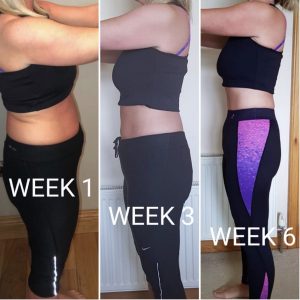

I have hundreds of clients who send me their long-term weight management stories after dieting aggressively and successfully managing their weight on maintenance calories with zero side effects or negative health implications. Check out a few pics sent to the recently by clients.
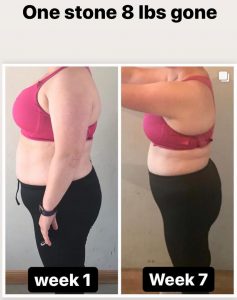
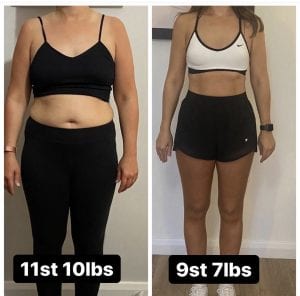
How long should I diet for?
This is all relative to your own starting point and your goals; you may diet for 6 weeks or as long as 12 weeks. I wouldn’t have anyone diet on highly restrictive calories for more than ten days regarding restrictive calorie amounts. I leave it flexible and open to the clients for when they want to return to maintenance calories. Every ten days- two weeks, I insert a higher calorie day. This reset day helps stabilise some of the hormones that may be upset by prolonged dieting periods. Additional to this, dependant on the client, after 4 weeks, you would return to maintenance calories for around 2-3 days. This gives you a psychological & physical break which will help stabilise and regulate hormones.
If you need a handheld to achieve your diet or fitness goals, please reply to this email to enquire about my 1-1 online coaching service—a private online service working with me directly for full bespoke service, complete accountability and maximise results.
To listen to more on this topic check out my podcast on Spotify click button below ( Aggressive dieting done safely Episode #3)


